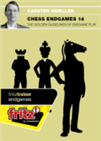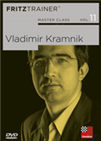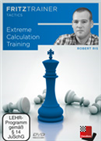A tactical slugfest
 It was not all about the rating average. The Pamplona Masters organizers put together an attractive line-up for the 16th edition of the event. Well-known tactical wizards Alexander Morozevich and Alexei Shirov headed the field, which had in 23-year-old Dmitry Jakovenko a third seed that fought for tournament victory throughout.
It was not all about the rating average. The Pamplona Masters organizers put together an attractive line-up for the 16th edition of the event. Well-known tactical wizards Alexander Morozevich and Alexei Shirov headed the field, which had in 23-year-old Dmitry Jakovenko a third seed that fought for tournament victory throughout.
Two young grandmasters that would later become familiar names for chess fans were also included: Radoslaw Wojtaszek (aged 19 at the time) and Viktor Laznicka (18). Among the local representatives, besides Shirov, we count Miguel Illescas and Oleg Korneev, who still represented Russia at the time but would later change federations to represent Spain. A 29-year-old Christian Bauer from France completed the line-up.
Top seed Morozevich drew his games from rounds one and five, and won the rest. Rated 2747 at the time, he finished the event with a 2951 Tournament Performance Rating. Moreover, he could have got an astronomical 3085 TPR had he managed to win a queen v rook endgame over second-placed Jakovenko.
Out of the 28 games played, no fewer than 18 finished decisively, with plenty of them featuring fearless attacks and remarkable tactical skirmishes.
[Pictured: Morozevich in Biel, 2003]
A technical miss
Let us start with the one that got away for 'Moro'. The Russian star had first gained a pawn and then traded down to a won queen v rook ending in round five against Dmitry Jakovenko. Morozevich started trying to convert the technical endgame on move 72 and missed more than one win. On move 111, he fell prey to a picturesque drawing method:
 Rules of thumb are the key to everything when you are having to set the correct course in a complex endgame. In this final DVD of his series on the endgame, our endgame specialist introduces you to the most important of these rules of thumb.
Rules of thumb are the key to everything when you are having to set the correct course in a complex endgame. In this final DVD of his series on the endgame, our endgame specialist introduces you to the most important of these rules of thumb.
White's 111.Kf3 allowed 111...Rf2+ 112.Ke3 Re2+ 113.Kd3 Rd2+ 114.Kxd2 stalemate — if the king does not capture, the rook will keep giving checks.
Jakovenko and Morozevich were sharing the lead on 4 out of 5 after this draw. Jakovenko drew his two remaining games, while Morozevich finished the event with two consecutive wins.
Winning à la Moro
Morozevich at his best showed an astounding tactical alertness. His key round-three encounter against Shirov saw the latter getting out-calculated in a complex position:
 This DVD allows you to learn from the example of one of the best players in the history of chess and from the explanations of the authors (Pelletier, Marin, Müller and Reeh) how to successfully organise your games strategically, consequently how to keep y
This DVD allows you to learn from the example of one of the best players in the history of chess and from the explanations of the authors (Pelletier, Marin, Müller and Reeh) how to successfully organise your games strategically, consequently how to keep y
White has a couple of positional advantages — a centralized queen and rooks on the open files. Shirov faltered with 29...Nd7 and his position completely collapsed all of a sudden. There followed 30.Bxd7 Bxd7 31.Ne4 (with a discovered attack along the e-file) fxe4 32.Rxd7+ Kh8 33.Rg6 and Black resigned, as the rook on f6 is pinned.
In round seven, Korneev blundered the game away in one move, and the eventual champion, clearly in good form, had no problems finding the winning combination:
White demonstrated 31...Qxd5 had been a mistake by showing 32.Rxa6+ Kb8 33.Qf4+ Rd6 34.Rxb7 Kxb7 35.Rxd6 Qxb3 36.Qf7+ and Black resigned. Morozevich's pieces seem to be perfectly placed, ready to jump in whenever the opponent makes a false move.
Select an entry from the list to switch between games
The ever-entertaining Shirov
The author of the acclaimed "Fire On Board" books only drew one game in Pamplona, winning four and losing two to finish third. In round two, he found himself on the wrong side of a deadly attack against Wojtaszek:
The Polish grandmaster provoked his opponent to open up the c-file with 27...Bb6. The idea is that after 28.cxb6 Nc3+ White has no good way to respond to the check — 29.Kc1 runs into 29...Nxa2+ forking, while 29.Kb2 runs into 29...Rxa2+ 30.Kc1 Rxc2+ 31.Kxc2 and 31...Nxd5+ wins the queen. Shirov gave up his queen with 29.Qxc3 and resigned two moves later.
In the last round, Shirov also gave up his queen, but this time he had a wonderful combination that justified his decision. He was playing white against Illescas:
 There are few names which, like that of Alexei Shirov, can be associated with fantastically imaginative and tactically influenced play. Now the Latvian grandmaster is presenting a DVD on precisely that element of the game of chess. And one that is completely based on his own games.
There are few names which, like that of Alexei Shirov, can be associated with fantastically imaginative and tactically influenced play. Now the Latvian grandmaster is presenting a DVD on precisely that element of the game of chess. And one that is completely based on his own games.
Shirov correctly calculated that 22.d5 was better than the also strong 22.Qe2 — but, of course, you do not need to ask Shirov twice to sacrifice his queen! After 22...Rxd1 23.Raxd1 e3 24.Rfe1 b5 White has 25.dxe6 bxa4 26.Rd7:
The active rook combined with the connected passers eventually gave white the win.
Select an entry from the list to switch between games
Fine combinations by Bauer and Jakovenko
Apparently playing next to creative aces inspired other participants. Bauer finished fourth on 4 out of 7 and showed great calculation abilities to take down Laznicka in round six:
 Special attention will be paid to Intermediate Moves, Quiet Moves, Sacrifices on Empty Squares, Mating Patterns, Ignoring Opponents Threat, Calculation in Defence and Method of Comparison. Plus 50 interactive examples to test your knowledge.
Special attention will be paid to Intermediate Moves, Quiet Moves, Sacrifices on Empty Squares, Mating Patterns, Ignoring Opponents Threat, Calculation in Defence and Method of Comparison. Plus 50 interactive examples to test your knowledge.
There followed 32...Ne1 33.Rxd6 Nxf3+ 34.Kf2 Rxd6 35.Rxd6 Rxg2+ 36.Kxg2 Bxd6 37.Kxf3:
Bauer had foreseen this position, knowing that 37...Nd7 is winning here. Black threatens to capture on f6, and in case of, for example, 38.Bg5 the light-squared bishop attacks the queenside weaknesses via d3-c2. White played 38.Kg4 and resigned after 38...Nxf6 39.Kg5 Be7.
In round two, Jakovenko crashed through Illescas' defences. The Spaniard was playing black and riskily left his king uncastled:
25.Nxf7 Rxd3 26.Rxe6 Qd4+ 27.Kh2 Bxg2 28.Qe7+ Kg8 29.Nh6+ Kh8 30.Qf8+ Kh7 31.Qg8+ and mate next move. (You can try your own variations on the diagram above.)
Select an entry from the list to switch between games

Dmitry Jakovenko in 2006 | Photo: Official site
Final standings - Ciudad de Pamplona 2006

All games
Links


















 It was not all about the rating average. The Pamplona Masters organizers put together an attractive line-up for the 16th edition of the event. Well-known tactical wizards Alexander Morozevich and Alexei Shirov headed the field, which had in 23-year-old Dmitry Jakovenko a third seed that fought for tournament victory throughout.
It was not all about the rating average. The Pamplona Masters organizers put together an attractive line-up for the 16th edition of the event. Well-known tactical wizards Alexander Morozevich and Alexei Shirov headed the field, which had in 23-year-old Dmitry Jakovenko a third seed that fought for tournament victory throughout.




